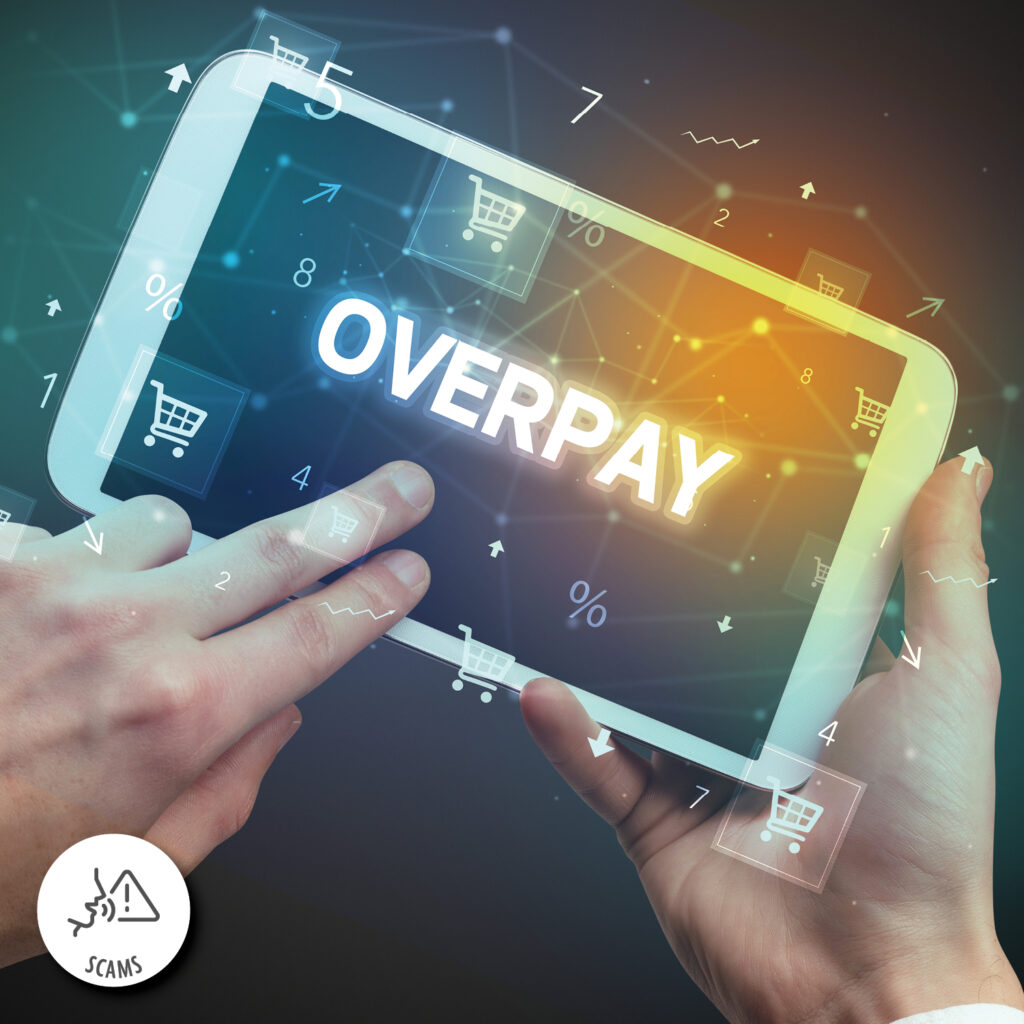Great news – you’ve just received a check, and you’ve been overpaid! But there’s a catch: the check writer wants you to send the surplus back to them. Unfortunately, though, if you follow these directions, you’ll be buying right into a scam.
Overpayment scams are fairly common, and for the unaware, they can be difficult to spot. Let’s take a look at these scams and what you need to know to avoid falling victim to these ruses.
What is an overpayment scam?
In an overpayment scam, fraudsters target an individual who’s selling a large item online, such as a car. The scammer will reach out to the seller, offering to buy their car for more than the asking price. Then, they’ll send the seller payment in the mail.
At this point, the seller is thrilled. But, when the check comes, it brings with it a surprise – they’ve been overpaid. Soon after, the alleged buyer contacts the seller to ask them to refund the surplus. The seller may think it’s strange, but they comply, not wanting to keep money that isn’t theirs. The next thing they know, the original check hasn’t cleared and they realize they’ve been scammed. Not only have they not been paid for the purchase they believed the check writer was buying, but they’ve also lost the money they’ve sent back to the scammer.
Red flags
When selling an item on an online platform, look out for these red flags, which can alert you to a possible overpayment scam:
- You’re offered more than your asking price for an item you’re selling online.
- You get paid more than you’re owed for an item you’re selling.
- You’re urged to act quickly and take up a buyer on an offer or risk having them pull the offer off the table.
- You’re asked to refund an overpayment via wire transfer or prepaid debit card.
If you encounter any of these red flags while trying to sell an item online, do not engage with the “buyer.” Block their email address and mark it as spam to avoid further contact from the scammer. You may also want to report them to the platform you’re selling the item on to help stop them from reaching out to others.
How to avoid overpayment scams
The FTC offers the following tips for avoiding overpayment scams when selling online:
- Always know who your buyer is. Confirm the buyer’s name, street address and telephone number independently.
- Never accept payment for more than your selling price.
- Never agree to finalize a transaction until the buyer’s check has completely cleared. This can take several days.
- Never agree to wire funds back to a buyer.
- Don’t be tempted by offers that urge you to “act now.” If a buyer is offering you a price that seems too good to be true, it may just be a scam. Slow down, and research the buyer thoroughly before reaching any agreements.
- It’s best not to accept payment by a check from an unknown buyer.
- If you do accept payment by check, ask for a check that’s associated with a local bank, or a bank with a local branch. This way, you can visit the bank to determine if the check is authentic. If you cannot get a check from a local bank, ask for the bank’s phone number and call it to verify its validity.
- If cash is not an option and you want to avoid checks, consider an alternative method of payment, such as an escrow service or online payment service. If the buyer wants to use a service with which you are not familiar, verify its legitimacy before agreeing to accept payment from this service. You can research its website, customer service hotline, read its customer reviews and more.
If you’ve been targeted
If you believe you’ve been targeted by an overpayment scam, there are steps you can take to mitigate the damage.
First, report the scam to your financial institution, as they may be able to reverse the payment. Next, alert the FTC at ftc.gov so they can do their part in catching the criminals. Finally, you can let your local law enforcement agencies know about the scam and warn your friends and family about it as well.
Don’t get caught in an overpayment scam! Use this guide to stay safe.





